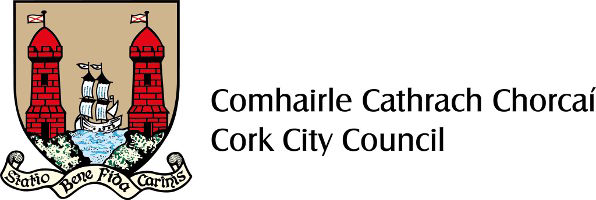Tadgh Barry 'Rebel and Revolutionary' Exhibition
To mark the Centenary of the death of Alderman Tadhg Barry (d. Nov 1921), the Archives has created the following exhibition, which was on display at the Archives until April 2022. The exhibition was expertly researched, written and curated by historian Dr. Luke Dineen. It features original records, documents and photographs, including a number of letters from our Liam de Róiste collection, and several items that were kindly donated to the Archives by Barry O'Shea, the grand-nephew of Tadhg Barry, and family. Cork Public Museum also kindly loaned a number of items from their collection. The original Tadhg Barry archival records held by the Archives, are available to research by appointment. The curation, graphic design, and printing of the Exhibition was funded by the Cork City Council 1920-1923 Commemorations Programme and the Department of Tourism, Culture, Arts, Gaeltacht, Sport and Media. Items displayed for the exhibition were digitised in-house by Archives staff.
View the Tadhg Barry 'Rebel and Revolutionary' Exhibition panels online

Brief Biography of Tadhg Barry
Born in Cork City 1880, Barry went to Blarney Street National School and the North Monsatery CBS. He worked at Our Lady's Hospital (Cork Mental Asylum/Hospital) until 1909. Later a journalist for the Cork Free Press, he was active in GAA circles, writing a book in 1916 on how to play hurling. A founder member of Sinn Féin and leader of the Cork branch of the ITGWU trade union, and Fianna Éireann, Barry was also a founder member of the Irish Volunteers in Cork. He was involved with the Irish Soviets in 1919, and was elected an Alderman (City Councillor) of Cork Corporation in January 1920. Shortly after the death of Lord Mayor Terence MacSwiney, he was arrested and transported to Ballykinlar camp in County Down where he, apparently, kept a red flag flying over his quarters. On approaching the wire boundary of the camp, he was shot dead by a camp sentry guard on 15 November 1921. He was the last prominent Republican killed during the War of Independence. Barry's funeral from the North Cathedral, Cork, was massively attended, with Michael Collins taking leave from the Anglo-Irish Treaty negotiations to attend.
Exhibition Team:
Project Manager: Brian McGee Senior Archivist
Exhibition Curator: Dr.Luke Dineen
Exhibition Archivist: Timmy O'Connor
Exhibition Panel Design: Snap Printing

